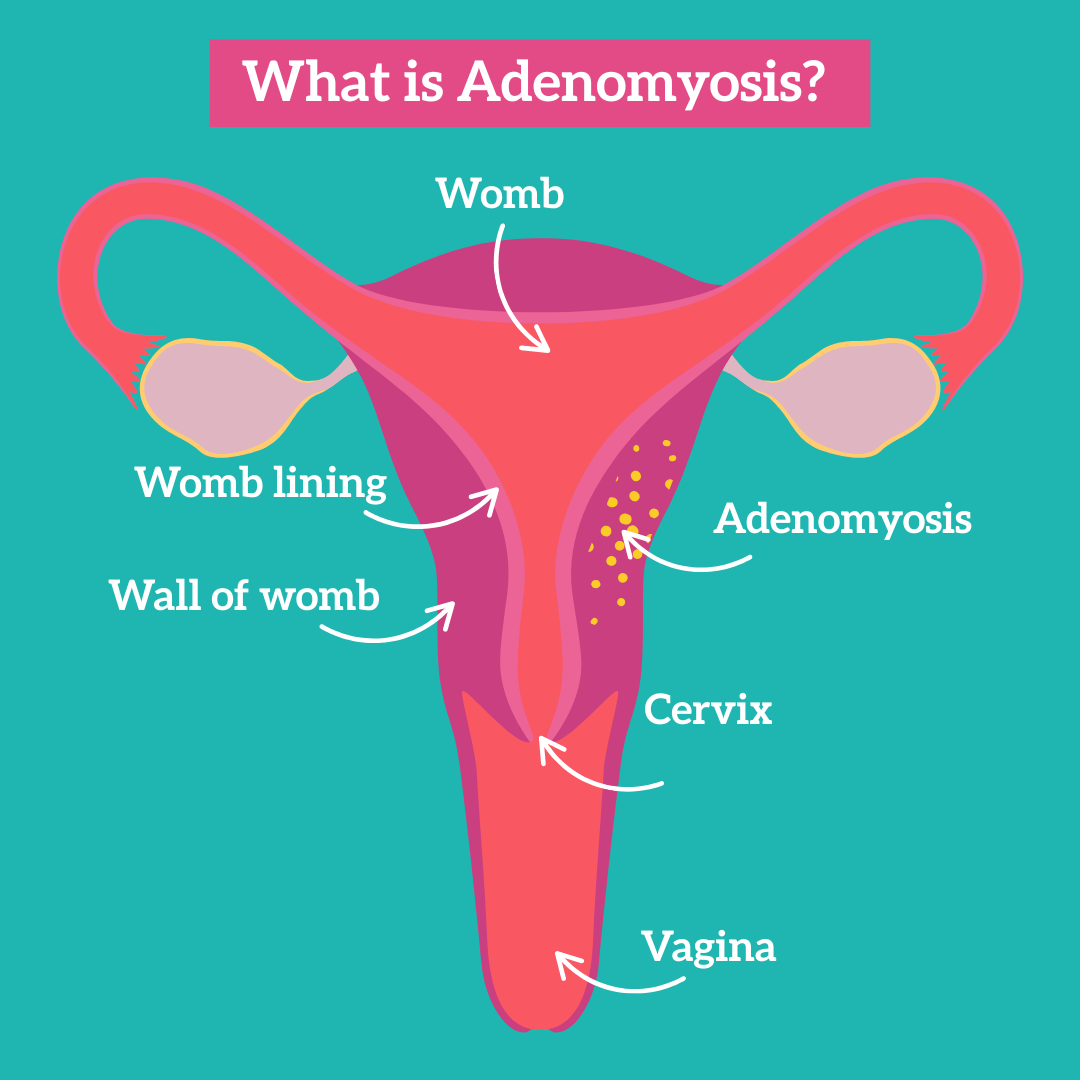What Is Adenomyosis?

Adenomyosis is a condition where the tissue that normally lines the uterus (the endometrium) grows into the muscular wall of the uterus. This tissue continues to act as it normally would—thickening, breaking down, and bleeding with each menstrual cycle. But as it is trapped inside the uterine muscle, it causes inflammation, pressure, and chronic pain.
Symptoms of Adenomyosis can include:
- Heavy or prolonged menstrual bleeding
- Intense menstrual cramps (often worsening with age)
- Pelvic pain or pressure
- Pain during intercourse
- Fatigue
- Painful bloating
If you are experiencing any of these it is important to book and appointment with your GP or healthcare provider immediately.
Natural ways to support symptoms
Whilst there’s no known cure for adenomyosis outside of surgery, there are some natural ways that you can ease symptoms.
Anti-Inflammatory foods
To reducing inflammation, and ease pain and bloating your daily diet can help. Include more leafy greens, berries, turmeric, and fatty fish (like salmon). Try to avoid processed foods, refined sugar, and red meat.
Stay hydrated
Staying hydrated will help ease bloating, and promote regular bowel movements.
Try our Over The Moon tea blend which includes raspberry leaf, used traditionally to support female wellbeing as a 'uterine tonic, whilst the dandelion root can help bloating, and chamomile and rose petals are naturally soothing and anti-spasmodic.
For a luxuriously sumptuous chocolate treat, our And Breathe...Ashwagandha hot chocolate contains cinnamon and ginger, renowned for their anti-inflammatory properties. And the cacao is not only delicious, but also high in magnesium, which can help to ease cramping and bloating.
Heat
A warm compress or hot water bottle on the lower abdomen can help relax muscles and reduce cramping. Pair it with a soothing cuppa and deep breathing for extra relief.
Mind-Body practices
Stress can amplify symptoms, especially pain and hormone fluctuations. Practices like yoga, gentle stretching, and meditation can bring the nervous system into a calmer state, which may reduce the severity of symptoms over time.
Adenomyosis can feel isolating, especially when diagnosis is delayed or dismissed. But you’re not alone—and your pain is real. Keep a detailed diary of your symptoms, to help your doctor understand your experience. If you're not satisfied with the progress, ask for a referral to a specialist and consider requesting a second opinion.



Comments